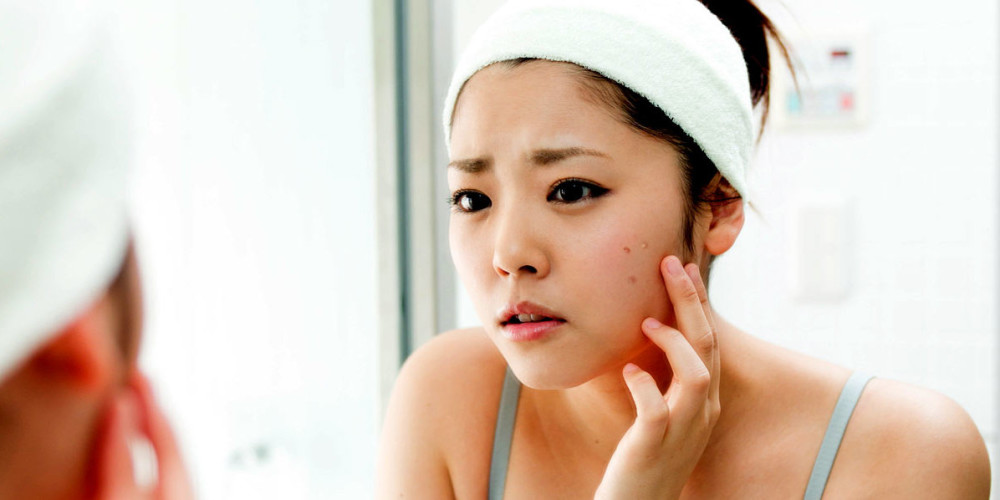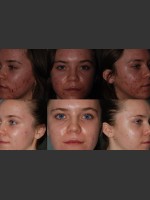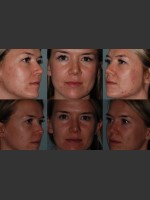Do You Know The Biggest Acne Risk Factors?

By Chelsea Campbell
Acne is undoubtedly the bane of teenage existence. Even the most clear-skinned of us have likely experienced the fury of an angry red pimple, usually at the worst possible time; right before a date, the day important photos will be taken, before an interview, etc.
According to Medical News Today, around 85% of the U.S. population between ages 12-24 reports having acne. However, for some people - both teenagers and adults alike - acne is more than just a minor annoyance. It is a humiliating, often painful reality that they are plagued by daily. So what makes some chosen few the lucky ones who only have the occasional breakout? What factors cause others to suffer from chronic cystic acne?
Hormones and Genes
It is probably obvious that hormones play a major role in the development of acne. Most people experience acne's onslaught during their teenage years, when hormones (specifically testosterone) are in flux, and many females of menstrual age get breakouts in the days leading up to their periods. Genes also contribute to one's likelihood of developing acne, as the condition often runs in the family. It may seem like a cruel game of Russian roulette, but sometimes there is just no predicting or avoiding your susceptibility to this skin condition.
Stress Less!
Although stress does not specifically cause acne, it can cause flare-ups when stress disrupts the body's hormonal balance. Lisa A. Garner, MD, FAAD, clinical professor of dermatology at the University of Texas Southwestern Medical Center agrees, "When you already have acne and you get into a stressful situation, that seems to be when your acne really flares up. And even if scientists still aren't exactly sure what the correlation between stress and acne is, a 2003 Stanford University study showed that acne severity correlated highly with increasing stress.
IIn addition to hormones, stress, and genes, external factors can cause acne to develop or worsen. The most common areas to have acne appear are on the face, neck, shoulders, chest, and back because these areas contain the most sebaceous (oil) glands. When the pores that contain these glands get clogged with oil (known as sebum), dirt, and bacteria, they cause acne to form. Therefore, it is important to keep pores clear in order to minimize the risk of a breakout.
Don't Clog Your Pores
Many hair and skin products contain substances that congest pores and irritate skin and consequently, cause flare-ups. Having hair hanging in the face can cause the skin to become clogged by contact with residual hair product or from oil from your strands. You should take care to only use oil-free, non-comedogenic (non-clogging) products on areas prone to acne to minimize irritation. Some common ingredients to avoid are coconut oil, SD and denatured alcohol, emollients (look for names ending in "-ate"), D&C Red dyes, and polyethylene glycol.
Cleanse Correctly
Sweating often and not washing the skin afterward can cause breakouts, but conversely, washing your face too often or too hard can be counterintuitive as it causes the skin to become dry and irritated, signaling your body to produce more sebum to counteract the dryness and restore pH balance. Washing your face after exercising or sweating excessively is a wise idea, but otherwise, a gentle, thorough cleansing in the evening before bed and once in the morning is sufficient. Aim to avoid touching your face as well so that dirt, oil, and bacteria from your hands is not transmitted to the pores on your face. And while it is a myth that eating greasy food causes acne, if you work in an area with grease, such as with fry vats in a kitchen, oil particles can become skin to become clogged and break out.
Although pimples and blackheads are often unsightly and hard to control, by avoiding common irritants and triggers, you can hopefully start to lessen breakouts. Acne is on an 8-week cycle, so it may take up to 2 months before you notice visible results - consistency is key. If you feel that your acne is very severe, painful, or detrimental to your self-esteem, see a dermatologist who can advise you with more serious options such as medication.


